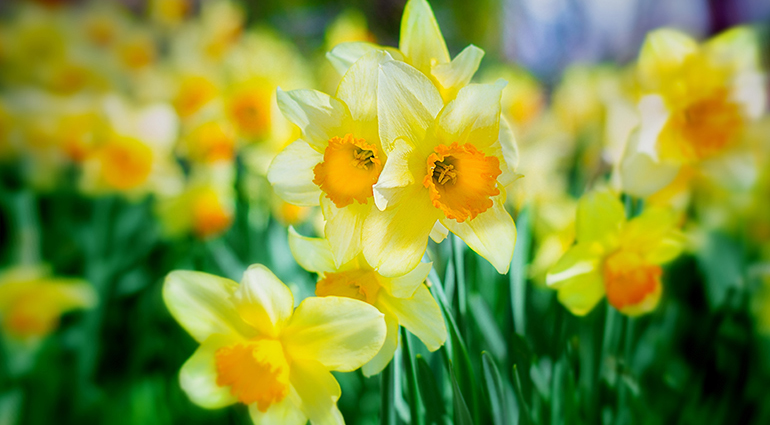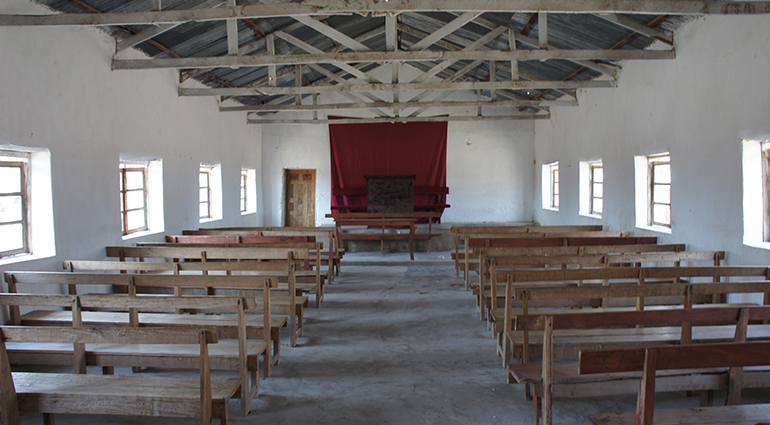Glory to the Grower
So neither the one who plants nor the one who waters is anything, but only God, who makes things grow. 1 Corinthians 3:7
One day, I noticed an unexpected splash of yellow to the right of our driveway. Six stalks of daffodils, sandwiched between two large stones, bloomed bright and tall. Because I hadn’t planted, fertilized, or intentionally watered the bulbs, I couldn’t figure out how or why the flowers had sprouted in our yard.
Jesus illustrated a mystery of spiritual growth in the parable of the growing seed. He compares the kingdom of God to a farmer scattering seed on the ground (Mark 4:26). The one who scattered the seed may have done what he could to care for the soil. But Jesus said the seed sprouted whether or not that man slept in, woke up, or even understood the growth process (vv. 27–28). The land owner benefited from the harvest (v. 29), though its development didn’t depend on what he did or his understanding of the workings beneath the surface of the soil.
The maturing of the seeds in Jesus’s parable, like the blooming of my daffodils, occurred in God’s time and because of God’s growing power. Whether we’re considering personal spiritual growth or God’s plan to expand the church until Jesus returns, the Lord’s mysterious ways aren’t dependent on our abilities or understanding of His works. Still, God invites us to know, serve, and praise the Grower, reaping the benefits of the spiritual maturity He cultivates in and through us.
INSIGHT
Commenting on the parable found in today’s text, Simon Kistemaker says: “From the moment he has sown the seed the farmer must leave the sprouting, the growing, the pollinating, and the maturing to God. . . . The farmer cannot explain this growth and development. He is only a worker who at the proper time sows and reaps. God holds the secret of life. God is in control” (The Parables: Understanding the Stories Jesus Told).
It isn’t that the farmer isn’t busy and simply relaxes during the growing of the wheat. He is busy weeding, mulching, and watering. But the growth is up to the Lord. We can work to encourage growth, do things that create an environment for growth and for plants to flourish, but ultimately the growth is something we see, not something we produce. The same is true in our spiritual life.
Take a moment to thank God for the growth you’ve seen in your life. How can you prepare the soil of your heart for continued growth in Christlikeness?



